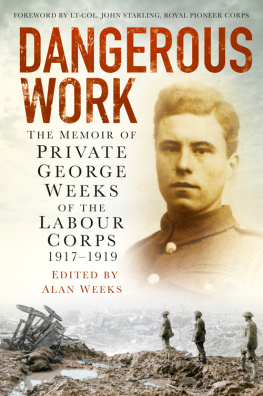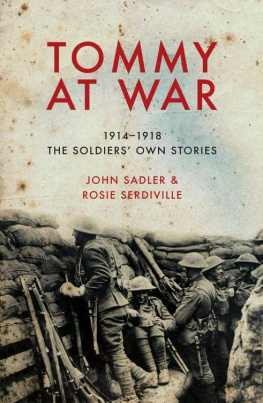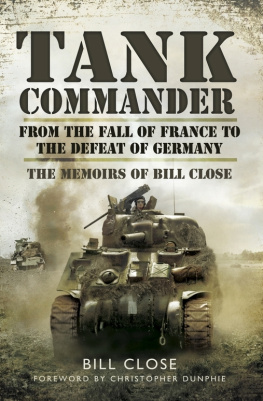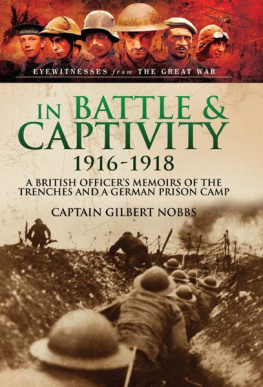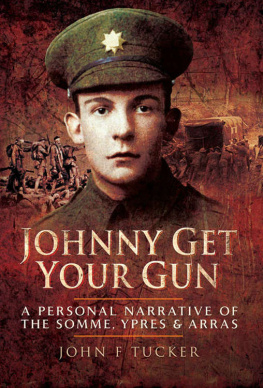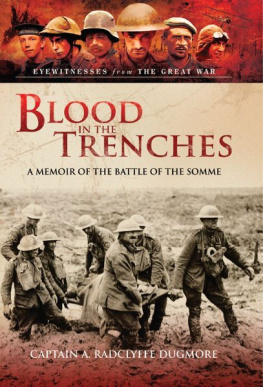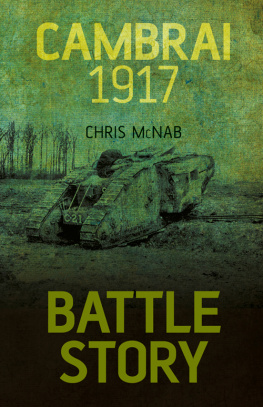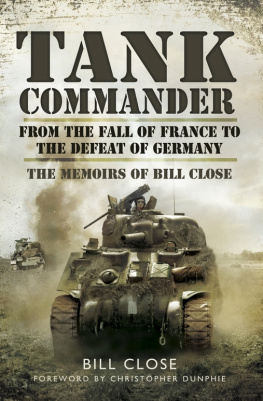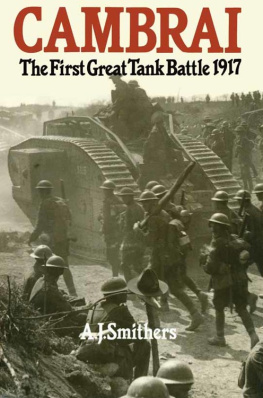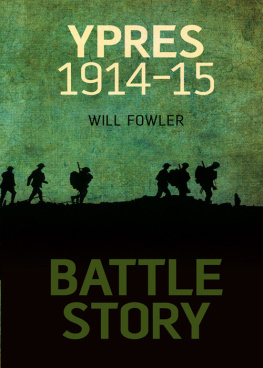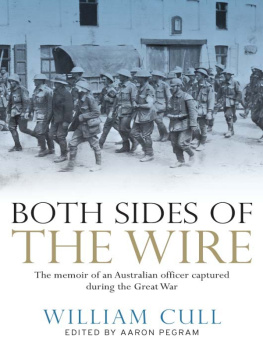First published in Great Britain in 2014 by
Pen & Sword Military
an imprint of
Pen & Sword Books Ltd
47 Church Street
Barnsley
South Yorkshire
S70 2AS
Copyright Jamie Vans 2014
HARDBACK ISBN: 978 1 78346 277 3
PDF ISBN: 978 1 47383 683 9
EPUB ISBN: 978 1 47383 507 8
PRC ISBN: 978 1 47383 595 5
The right of Jamie Vans to be identified as the Author of this Work has
been asserted by him in accordance with the Copyright, Designs and
Patents Act 1988.
A CIP catalogue record for this book is available from the British
Library
All rights reserved. No part of this book may be reproduced or
transmitted in any form or by any means, electronic or mechanical
including photocopying, recording or by any information storage and
retrieval system, without permission from the Publisher in writing.
Typeset in Ehrhardt by
Mac Style, Bridlington, East Yorkshire
Printed and bound in the UK by CPI Group (UK) Ltd, Croydon,
CRO 4YY
Pen & Sword Books Ltd incorporates the imprints of Pen & Sword
Archaeology, Atlas, Aviation, Battleground, Discovery, Family History,
History, Maritime, Military, Naval, Politics, Railways, Select,
Social History, Transport, True Crime, and Claymore Press,
Frontline Books, Leo Cooper, Praetorian Press, Remember When,
Seaforth Publishing and Wharncliffe.
For a complete list of Pen & Sword titles please contact
PEN & SWORD BOOKS LIMITED
47 Church Street, Barnsley, South Yorkshire, S70 2AS, England
E-mail:
Website: www.pen-and-sword.co.uk
Foreword
C aptain Vans Agnew left to his family a full account of his time on the Western Front and as a Prisoner of War (PoW) in Germany, in the form of diaries, letters and memoirs. He had clearly always intended to publish an edited version of them and it seems probable that only his unusually busy life and the lack of a settled home could have prevented him from approaching a publisher with the typescript from which the following extracts are drawn. He had reached the stage, at least, of making a list of publishers and their special interests. If any such approach was made, though, no record survives of it.
Although I have been the owner of this archive since 1966, I have put off until recently the job of editing the work and making it available to the wider readership for which it was always intended. I owe a considerable debt to Professor Peter Widdowson (who sadly died in 2009) who collaborated on the first steps of selection and configuration of the material and whose enthusiasm and knowledge helped me to see its importance and to appreciate what a remarkable character my great uncle was.
Frank was forty-six when he travelled from America in 1914 to fight the Germans, but in order to get into the 2nd King Edwards Horse, a regiment recruited from overseas volunteers, he claimed to be forty. I can call to mind vividly the day that he came to me whilst my regiment was training in England and begged me to accept him as a trooper in the ranks. I was so much struck at the time by his spirit that I immediately took him into the regiment even though his age appeared to be against him. I never regretted for one moment taking this decision, his commanding officer1 wrote in a letter in 1918. No man under my command did harder, more active or braver service than your brother.
Posted to the front in May 1915, Frank was soon trained as a bomb-thrower, which got him into the thick of the action, but not enough to satisfy him. He was quickly promoted and in August proudly accepted a commission which led to a period of training in Ireland. He returned to France in December 1915 for further training in machine guns and acted as an observer of the Battle of the Somme where he first saw tanks in action. Another spell of training in the use of the Vickers machine-gun followed but, to his disgust, this was interrupted by a posting of several months as Divisional Cavalry, guarding the headquarters of General Haig at Montreuil-sur-Mer.
In January 1917 he was finally able to get himself a transfer to the Tank Corps and as a tank commander was wounded at Messines, the model show of the whole war as he described it, in an action for which he was awarded the Military Cross. He saw further action at Third Ypres, not surprising that B Battalion was butchered that day and at Cambrai where he commanded No.5 section. After a successful attack on 21 November, heavy fighting followed on the 23rd and the tank Frank was in was disabled. He and several of the crew were wounded and were forced to give themselves up as prisoners.
Frank was sent initially to Mnster where his wounds were treated by a dud doctor. Luckily, he was soon transferred to hospital in Hanover and thence successively to prison camps at Karlsruhe, Heidelberg and Frstenberg. His account of this time is rich with details, including photographs and memorabilia, of how the prisoners passed their time (tennis, musical theatre and escaping were among the entertainments they made for themselves). Extraordinarily he was able to obtain, in Germany, first an atlas showing the various theatres of war and later a set of maps which he joined together to make a sheet about seven feet square on which he plotted the progress of the war with increasing contentment, especially when the Germans announced that they were retreating according to plan.
On and off, he had hopes that his age and wounded arm would persuade the Germans to allow him into internment in Holland or Switzerland but he was one of the unlucky ones despite the recommendation of the medical board. Frank was convinced that being in the Tank Corps made him a villain in the eyes of the German doctor who made the final decision and who persisted in refusing his application.
He was stuck in this succession of German camps until after the Armistice, then volunteered to go to Copenhagen to help in the repatriation of British troops; it seems a shame not to come back to spend Christmas with you but you know how it is, and you would do the same yourself, he wrote to his sister. He finally made it back to England in January 1919 and left for the USA in October. A 50-year-old survivor of some of the fiercest actions on the Western Front, Frank described the war variously as disgusting and hideous but also, as it neared its end, as a grand war.
During his military service he wrote most regularly to his sister Ida who lived in London and with whom he spent his leaves. She acted as the main point of contact for family and friends on both sides of the Atlantic, passing on news to and from Frank and organizing parcels of food and other necessities, first to Belgium and France and later, more importantly, to the German camps in which he was held prisoner. She also, crucially, kept all his letters to her, no doubt at his request.
The memoirs stand out among contemporary accounts for his attitude to the war which was a very personal mix of the crudely gung-ho and thoughtful assessment of its historical context, particularly his intense desire to see the United States join the war. I am sure it was with that outcome in mind that he sent articles for publication in Scribners Magazine in New York and wrote his most vituperative letters to friends and relatives in the USA.
At times, he loathed Germans and hurled vile insults at them in his letters; at others, he admired the courage of the soldiers in the opposite trenches, describing them at various times as a mangy, yelping mongrel and as good fighting material. Reasonably enough he blamed Germanys leaders for causing the war and British and Allied generals and staff officers for its mismanagement. He had no time for those who fought from a safe 30-mile distance, whom he described as gilded beings with halos (and did not mean that kindly) and he despised all those whom he considered to be cowards or defeatists.


